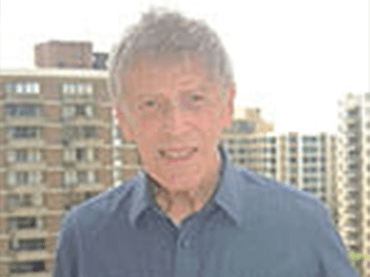The Challenge: Esophageal Cancer
David Solovey knows the importance of staying active. He exercises daily, eats well, and enjoys spending time with his children and grandchildren.
So, when he started having chest pains and trouble swallowing after eating, he decided to speak to his doctor.
“The symptoms I was experiencing were very concerning. I am a very positive person but I was starting to get worried,” says David.
Assuming that his problems were related to his heart, David made an appointment with his cardiologist.
But, he learned GERD (gastroesophageal reflux disease) — rather than a heart problem — was causing his symptoms. So, his cardiologist suggested he speak with a gastroenterologist.
David’s gastroenterologist ordered an endoscopy — a procedure that examines the inside lining of the esophagus, stomach, and part of the small intestine.
Unfortunately, during the procedure, doctors discovered a large tumor resting right where the stomach and esophagus meet. It was esophageal cancer — a disease in which cancerous cells form in the tissue of the esophagus.
The news devastated David and his family. They knew that surgery would be his only hope.
The most common treatment for esophageal cancer is an esophagectomy — or the removal of the esophagus.
“I knew that the downside to not having the surgery was not good,” remembers David. “It was my only hope.”
The Path to UPMC's Esophageal and Lung Cancer Institute
With the support of his family, David began searching for the best treatment available. He was determined to find a doctor with plenty of experience.
“My son really helped me through the entire process,” says David. “It was very important to us to find the right doctor.”
After visiting numerous centers, David and his family got a referral to UPMC.
Shortly after meeting the thoracic surgery team, David and his family knew that they were in the right place.
“I was very impressed with the team,” says David. “I said from the beginning that I wanted to go to a place with experience.”
The Solution: Robotic-Assisted Esophagectomy
On August 24, 2015, David had a robotic-assisted esophagectomy.
While this is a complex surgery, using minimally invasive and robot-assisted techniques:
- Greatly reduces the risk of complications
- Lessens pain
- Shortens time spent in the hospital
For David and his family, this was very important.
“The care was beyond belief. I was very impressed with my physician and all of the nurses,” says David.
The first step to David’s recovery was to get up and get moving.
In addition to the entire UPMC team, David believes that the support of his family played a huge role in his recovery.
With the help of the staff, his wife, and three children, he was up and walking the very next day.
Today, David is doing well and enjoying spending time with his family.
He's returned to his normal activities and all of his old hobbies such as singing, exercising, and painting.

















